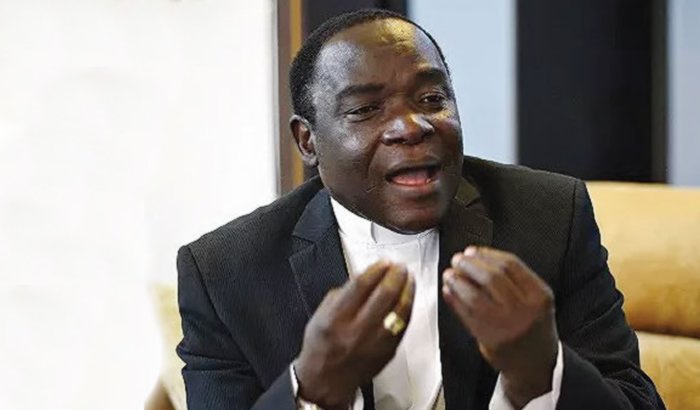
The Catholic Bishop of Sokoto Diocese, Matthew Kukah, has warned politicians against using religion to manipulate politics in the country.
He added that such a move came with a grave consequence as it happened in Germany during the reign of Adolf Hitler.
Kukah spoke in Abuja during the presentation of his new book, “Broken Truth” which was part of activities lined up for his 70th birthday celebration on Wednesday.
He said, “If you look at history, there is a consequence for using religion to manipulate politics. We just need to look at Germany, the consequences are there to see in Hitler.
“The problem is that the Nigerian political elites lack the mental capacity to understand the consequences of the fire they are stoking because there is nothing to suggest that the average person who is living in the North, who is Fulani, who is a Muslim or who is Hausa, can say that they are proud of the Nigerian political system, beyond a very tiny percentage.
“So, if you decide that you want to give privilege to a religion or an ethnic group, what will happen is that others automatically become outsiders.”
He also explained that agitations were ongoing in the country because the citizens were more intelligent than those steering the affairs of the country.
Kukah said, “The agitation that persists in Nigeria is largely borne out of the fact that those who govern us are not aware of how much mental progress ordinary people have made. Those who are being governed are more intelligent and endowed. And it will not have been a bad thing if people who don’t know seek knowledge.”
Kukah, however, advised youths to focus on how to change the system and not about participating in elections.
“It is a terrible mistake for young people to believe that participating in politics necessarily means contesting elections and winning, not that it is not important, but that it is not where our hope should be. Our hope should be how we can gradually change the system through other means. Politics is important but in the final analysis, the benefits are not very significant.”





